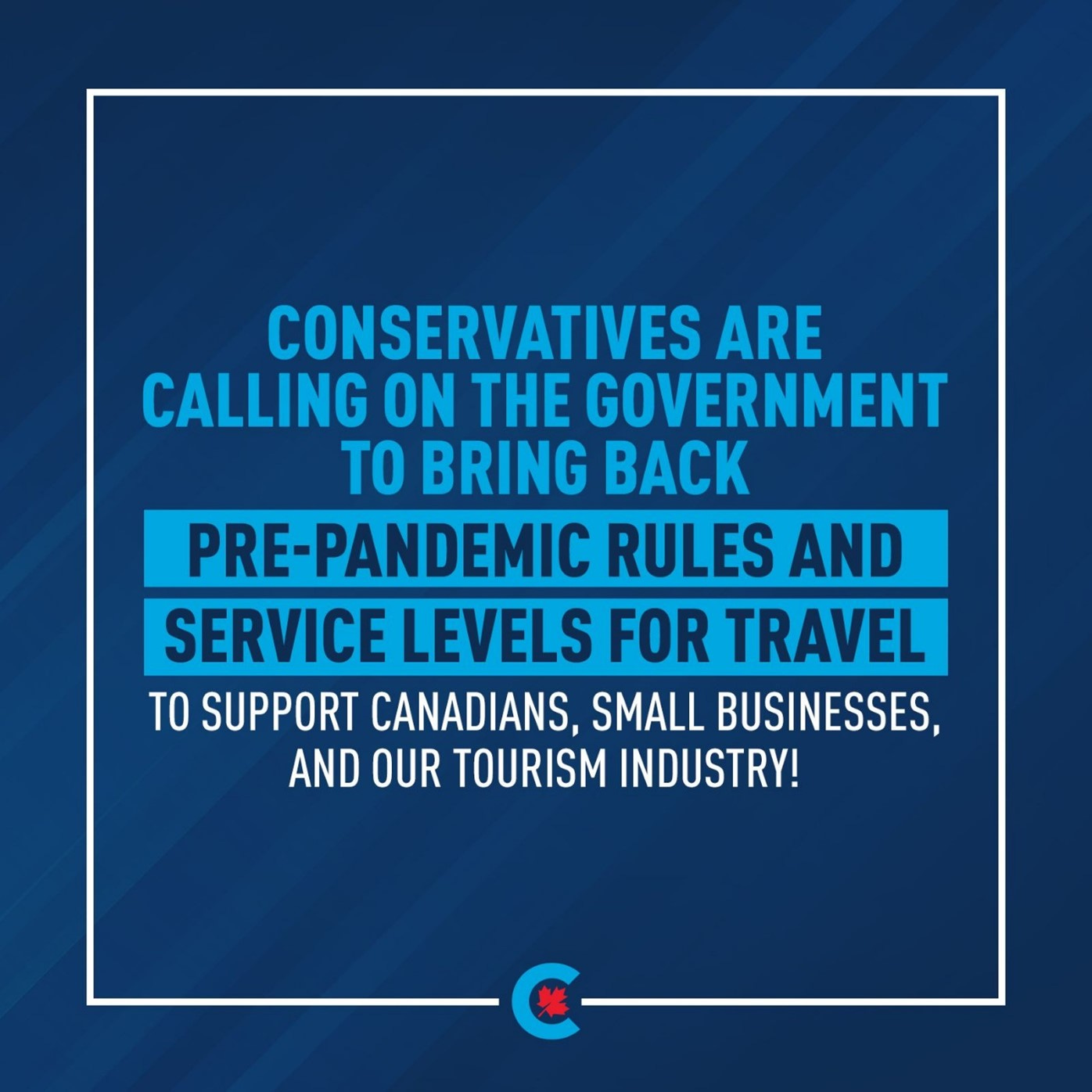C-18, the Online News Act, Deserves a Failing Grade
Plus a recent PBO report on the luxury tax, my visit to the Calgary Cardinals, and more
C-18, the Online News Act, Deserves a Failing Grade
Bill C-18, also known as the Online News Act, was introduced in Parliament by Minister of Canadian Heritage Pablo Rodriguez in April 2022. The legislation is largely inspired by similar legislation implemented in Australia, with the aim to level the financial playing field between online platforms and Canadian news outlets. If passed, the law would, among other things, require digital search engines and social media platforms like Google and Facebook to enter into commercial agreements with news organizations for the use and distribution of news content online. While this may sound reasonable, there are many problems with the mechanisms by which this will be achieved. Let’s get into the details of C-18.
The purpose of the proposed law laid out in section 4 is to regulate digital news intermediaries (more on this in a moment), enhance fairness, and contribute to financial sustainability. Independent local news businesses are specifically mentioned to present the view that small newspapers are being protected. However, the essence of the bill represents the victory of big business over the smaller news players. The Australian model, the forefather of C-18, had very mixed results, with many publications and commentators pointing out the imbalances it caused and the failures associated with the legislation. The Sydney Morning Herald noted some small newspapers had described it as an ‘obscene power imbalance’ . The former chief economist at the US Federal Communications Commission warned the Australian bill was likely to “increase the market share of entrenched major media outlets and reduce visits to smaller players.” Senior policy analyst and Harvard fellow Lisa Macpherson highlighted how these laws are doing little to “create the more representative and diverse news ecosystem that serves democracy best.” The Nieman Lab, a Harvard organization that advances journalistic ideals, described the policy as a “warped system that rewards the wrong things.” These commentators and organizations further described how larger media companies were able to dominate smaller news outlets, I encourage you to read their analyses.
Canada is going down the same ill-considered path that Australia did. The way the federal government is organizing the legislation is to give the CRTC more regulatory powers to enforce binding agreements should private negotiations not be successful. Search engines, the intermediaries, would then pay news content creators for the news they create in Canada and make available online. Google Canada and Meta have already inked deals with several Canadian publications including the Toronto Star, the Globe and Mail, and the Winnipeg Free Press. Smaller independent news outlets would be allowed to work together to form a group for negotiation purposes but, as I have linked above, that typically has not worked out in the Australian experience.
The problem the federal government is trying to address is the collapse of traditional media outlets, newspapers, and magazines. It is undeniable that the past 20 years has seen advertising revenue drop significantly as people moved online and digital ads, dominated by Google, became the increasing norm. But as former CRTC commissioner and news media observer, Peter Menzies, has pointed out, newsrooms never made money. It was the classified sections that did. These classified sections have migrated online with Craiglist, Kijiji, Autotrader, Facebook Marketplace, and so on. There is tremendous choice for the consumer and the options are mostly free for users. On the revenue front, the Canadian Media Concentration Research project conducted by professor Dwayne Winseck at Carleton University estimates the total revenue of Canadian network media at $90 billion in 2020. Of that, the big 5 American based web giants including Facebook or Meta, Google, Amazon, Apple and Netflix account for $11 billion. Bell Canada (also known as BCE), which owns CTV, BNN Bloomberg, CP24, Noovo, TSN, parts of Discovery, Crave, and more, accounts for $23.3 billion or nearly 26% of that Canadian media revenue. If the advertising revenue stream is what we are trying to impact, then who are we doing it for? The Heritage minister often brings up the boogeymen of the foreign companies like Google and Facebook to explain why this legislation is necessary, but these numbers disprove his thesis. If the concern is for smaller news outlets and the independent groups, then this legislation won’t help them as it did not help in Australia. Additionally, the types of news organizations eligible eliminates nearly all new independent media outlets from participation. Moreover, some of the specific wording of the law lends itself to confusion and broad government overreach, as well as unforeseen consequences.
The exemption orders in the legislation worries me as section 11 gives a new regulatory commission incredible powers to ignore agreements if they don’t meet specific policy objectives. The commission set up to oversee this new licensing of news content regime will allow them to deny agreements that don’t provide fair compensation, lead to more more news sustainability, and reflect the ‘diversity of the Canadian news marketplace’ (whatever that means). Lastly, a catch-all subsection allows Cabinet ministers to set whatever other conditions they see fit to be enforced by the commission. Section 28 of the Online News Act also allows the federal Cabinet to make a public broadcaster, namely the CBC, eligible to obtain funding from these agreements. Why this would be left to Cabinet to decide and not say a simple yes or no in legislation is unclear. There is no public reasoning I could find from the Heritage minister either.
The digital news intermediaries definition is broad enough to include Google in Canada, unlike the Australian legislation. In fact, any online communications platform including search engines and social media services, like Facebook, are captured by this wording. These will be the payers in the proposed system. Those receiving payments are defined in section 27 and it will be up to the federal government to pick ‘winners’ and ‘losers’. You will have to be eligible for the qualified Canadian Journalism Organization Designation, per subsection 248(1) of the Income Tax Act, and produce content on current events, including coverage of democratic institutions and process. You must also regularly have more than 2 journalists on payroll, operate in Canada with content edited and created here, and lastly produce news content not primarily focused on a single trade or industry or sector. They exclude news media focused on news specific to sports, recreation, arts, lifestyle, and entertainment. Frankly, it appears that unless you cover politicians, you won’t get anything. This entire setup looks like the debate on the news media bailout fund of $595 million and takes me back to my time on the parliamentary finance committee. This will again favour established legacy media outlets that have the size, clout, and connections to meet all of these criteria.
The logic of the legislation and how payment works is also flawed. Making weblinks available to any Canadian news content will open the digital news intermediaries like a search engine to having to pay the content creator. The wording in the legislation requires payments for merely facilitating access to news triggers a payment requirement. In fact, the description in the legislation is very broad to include news content and even portions of it, including indexes, aggregation and ranking of news content. The word ‘facilitated by any means’ is also used, which is incredibly broad and all inclusive. The Supreme Court of Canada found in 2011 that weblinks do not have commercial value by themselves and that there is more involved in creating value. The best analogy I can make here is that the federal government is suggesting that billboard companies should pay the companies that advertise on their signs if they are news media companies. That is backwards. This entire legislation could have the unforeseen consequence of making Canadian news harder to find, or certain types of independent news content creators harder to find as companies may choose to avoid showing content we search for that they have not licensed. This could lead to a more fragmented news landscape and nudge people back to traditional, legacy media. I have concerns here that search engines will have to change their search algorithms for Canadian based searches to avoid various situations where payments may be required simply to try their hardest to comply with this law.
The federal government deserves an F for C-18. I have said many times both during debates and to constituents that badly written legislation with unclear definitions, poorly laid out goals, and the potential for broad unforeseen consequences should receive a failing grade and be voted down. I will be voting down Bill C-18 before it goes to a parliamentary committee and should it get there, I imagine there will be significant amendments proposed by many MPs and the recognized parties to redraft various sections to provide for a truly independent, reliable and free press.
Parliamentary Budget Officer: luxury tax may cost Canadian economy nearly $3 billion
A recent PBO study into the Liberal government’s proposed luxury tax on the sale of new cars, boats and aircraft found that while government revenues will increase by approximately $779 million, the tax would have a significant impact on future sales of those goods over the next five years, costing the economy around $2.9 billion and further hurting an already devastated aviation industry. Introduced to Parliament last month as Bill C-19 and a key part of the Liberal government’s Budget 2021, the tax is forecast to reduce sales of what the Liberals label as luxury cars, planes and boats in Canada by 15% over the next five years, imposing levies on cars and aircraft over $100,000 and boats or yachts over $250,000. According to the National Marine Manufacturers Association, the tax will cost at least 900 jobs in their industry alone. Other industry experts have noted it is substantially more harmful to manufacturers than purchasers. Given the rapid increase in inflation to levels not seen in thirty years and an economy still recovering from the pandemic, now is not the time to implement policies that will result in job losses and that bring in very little in tax revenue.
Supporting Youth Baseball Programs
This week in the riding, I dropped by the Calgary Cardinals’ baseball practice and dropped some baseballs for their team and other youth playing at their level. It was great to catch up with Ryan and hear about how youth leagues have been impacted with supply chain issues procuring regulation baseballs. I wish all the best to youth joining a league team, keep fit and have fun out there!
Parliament to vote next week on Conservative motion to returning travel to pre-pandemic normal
On Monday May 30th, Conservatives are forcing a vote on our motion to end travel restrictions and return service at airports and other government services to pre-pandemic normal. Canadians are done with the Liberal government’s inconsistent travel rules that have caused significant delays at Canadian airports. According to a recent report, the number of flights delayed on arrival at Toronto Pearson International Airport jumped by a factor of 275 times last month in April compared with the same period in 2019. In the second week of May alone, 18,000 international passengers were held on board for longer than 30 minutes, while 3,000 were held longer than 75 minutes. Canada is miles behind other Western countries on ending pandemic-related federal travel restrictions. It's time to return Canada to pre-pandemic normal like all the provinces have done already.
Visit to the O’Dell House
This week, I visited the Randy O'Dell House in southeastern Calgary, a support center run by Wellspring Calgary that offers space and capacity to serve and provide vital support to Albertans with cancer. There are approximately 70,000 Albertans who have been diagnosed with cancer in the last five years and by 2030, the number of new cancer cases in the province is projected to reach 27,000 cases annually. I appreciated the opportunity to visit the center and see the work Wellspring has been doing. Thank you Natalie Noble and Elizabeta Liguric for the tour and the work you do for Calgarians.






Tom is looking out for us. Thanks Tom. :)
I agree with much of your criticism of Bill C 18 - there are indeed huge issues with the fairness of the Australian model and there is also far too much room for meddling by the CRTC and the government of the day.
However, regarding your statement that news never made money as it was the classified ads that generated the income and that those have moved to online providers as purchasing habits have changed, is accurate up to a point. I do think though that the argument can be made that if readers were only able to access the news on the internet via the newspaper's web sites that a) the news organizations would have a significantly greater commercial opportunity to monetize that access and b) the higher traffic on their platforms allow them to sell some classified advertising.
If we, as a small market country do not ensure that the news organizations are able to generate revenue, we will eventually end up with a greatly diminished press. I think that we can all agree that would be a disaster. Governments need to be held to account and investigative journalism is one of the key ingredients to do so.